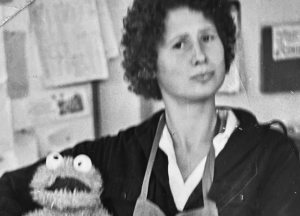![]() On April 20, Cleta Mitchell, a leading voice in conservative politics said this: Republicans should make it harder for young people to vote.
On April 20, Cleta Mitchell, a leading voice in conservative politics said this: Republicans should make it harder for young people to vote.
At a private retreat in Nashville for donors to the Republican National Committee, she called for banning voting on college campuses, rolling back same-day voter registration and ending the practice in some states (like Washington) of automatically mailing ballots to registered voters. All of these are necessary, according to Mitchell’s presentation slides, for “any candidate other than a leftist to WIN in 2024.”
This brazen campaign of youth voter suppression is morally wrong. It’s arguably unconstitutional under the 26th Amendment. And it is especially high-stakes in this political moment, when youth turnout has been credited for electing presidents and staving off red waves. Yet the political elites with the power to counteract this cynical youth suppression strategy are not prioritizing a key strategy for fighting back: adopting popular voting reforms that boost youth turnout.
While Mitchell’s leaked comments were shocking to the outside world, she was preaching to the choir. As young Americans trend further “left,” they are increasingly seen by the political right as the enemy.
But rather than attempt to win them over, Republicans are pushing young people out of the electorate.
In state after state, conservative politicians are writing and passing laws that make it harder for young people to register and vote. Idaho now prohibits young people from using student IDs to register or vote. Ohio has long mandated that voters show a government-authorized photo ID to vote, but students are not allowed to prove their legal residency using their student ID, official dormitory documents or utility bills.
In Georgia, students at private colleges — including the vast majority of the state’s Historically Black Colleges and Universities — are barred from using their student IDs to vote. Proposed legislation in Texas would ban campus polling places entirely.
There are three ways to approach this problem. The first is legal: challenge any potentially illegal case of youth suppression in the courts. The second approach is what I call “out-mobilizing suppression.” The idea is to spark enough energy in young people that they put in the effort to overcome even the most cumbersome administrative and logistical voting barriers.
Easier, and more effective, is an approach that tackles suppression as the policy problem it is. Anti-democratic actors are passing laws that intentionally make it harder for youth to vote? Let’s adopt policies that intentionally make voting easier.
Start with voter pre-registration, which allows young people who will be 18 by the time of the next election to register ahead of time, before they graduate high school and are overwhelmed by new jobs, schools and living arrangements.
Add same-day voter registration, so that people can register and vote at the same time at their polling place. Make sure that every registered voter is sent their ballot by mail and has a range of options for returning it.
Colleges and universities also have a role to play in fighting youth suppression. Every institution of higher learning should make Election Day an academic holiday, giving faculty, staff and students the time they need to vote.
Youth suppression is only getting worse. Yes, we need to fight it in the courts. And yes, we must inform young people that their voting rights are under attack and provide unwavering support in overcoming voting barriers. But we also need to be proactive about expanding young people’s ballot access.
Charlotte Hill is the interim director of the Democracy Policy Initiative at UC Berkeley Goldman School of Public Policy. This is an excerpt from her May 26 article in Democracy Docket. www.democracydocket.com/opinion/youth-voter-suppression

Be First to Comment